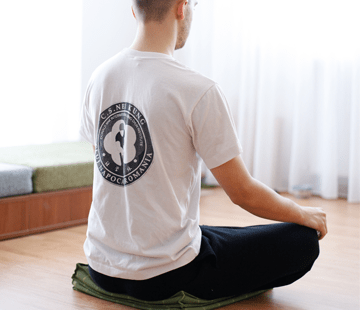Melanie McDonagh in the Spectator is the latest journalist to take a swipe at the ‘cult of mindfulness.’ The Spectator cover story is another interesting moment in the mindfulness media frenzy—for those unacquainted with the magazine, it’s the UK’s largest and most influential political weekly (Boris Johnson, current mayor of London and possible future prime minister, was once its editor). Its coverage of mindfulness is an indication of how far the practice has permeated British culture, including in politics. Around 100 MPs and peers in the Houses of Parliament have taken a mindfulness course, and the Mindfulness All-Party Parliamentary Group is in the middle of an inquiry on the benefits of mindfulness to public life.
McDonagh’s essay lost me at the start of paragraph five, which begins “So what exactly is mindfulness? On the back of a week of sessions, I can assert with some confidence that…” I’m a journalist myself, and it still amazes me that writers are encouraged to offer guidance on a topic in which their experience is next to zero. Would McDonagh critique the plays of Moliere after a week of French lessons?
I also think her main contention is confused—she asserts that mindfulness “quite clearly is a religion,” without ever defining what she means by the word. She does say that mindfulness is “non–doctrinal, non-prescriptive, non-demanding,” which makes me wonder, what kind of religion is this? She tells us that mindfulness is “squarely based on Buddhism,” but then criticizes the approach for “picking bits from it piecemeal.” So mindfulness is definitely a religion, despite core elements that suggest the contrary, and yet somehow it’s also not religious enough! Her point about the possible risks of intensive meditation to a fragile psyche is a good one, but it was better made here.
Getting beyond the mindfulness “hype”
However, the piece is worth considering, for a number of reasons. As pointed out by this graph (thanks to Rohan Gunatillake for tweeting it to me), negative press tends to mark a turning point in the adoption of a technology. Mindfulness hype serves few needs well, and we may be moving out of the initial phase of unbridled (over)-enthusiasm and into a phase of consolidation, reflection, and revision. The other main criticisms made by McDonagh— that its emphasis on non-judgement may preclude appropriate action, and that focus on reflection can seem selfish—are common. They often come up among people who have just taken up mindfulness meditation, who feel guilty for taking the time to practice it. By sitting still and watching my experience, I may feel better, but am I not abdicating some of my responsibilities?
It’s a symptom of how driven many of us are, that even taking a short time out each day can become a stick to beat ourselves. As a way to treat the epidemic of stress, maybe what we need is precisely a chance to let go for a while of the constant need to achieve, do better, strive, and struggle. But aside from the benefits of meditation for stress, which are well-documented, isn’t making time to become familiar with our minds a gift we can give to others? How often do we cause pain by not being aware and not taking care of how we relate to those around us? Aren’t we likely to connect with the world artfully—to exercise wise compassion rather than ‘idiot compassion’—if we ourselves have trained in contemplation, becoming more gentle and skilful through our own practice?
Mindfulness and “non-judgement”
I do think the word ‘non-judgement’ is problematic. It’s not actually one that mindfulness pioneer Jon Kabat-Zinn uses in his classic definition of mindfulness, which talks of “the awareness that arises from paying attention, on purpose, in the present moment, and non-judgementally.” There’s a subtle and distinct difference between not making judgements, and not being judgemental. The former implies not making decisions that could lead to discerning action, while the latter means dropping harsh, overly-critical ways of thinking and reacting.
Because this is so often misinterpreted, I’ve been experimenting with an adaptation: Mindfulness as “the awareness and approach to life that arises from paying attention on purpose, fully present, with curiosity and compassion.” The addition of “approach to life” makes it clear that we aren’t practicing to become better navel-gazers, while “curiosity and compassion” (which I’ve taken from the definition used by the Oxford Mindfulness Centre) may offer more clarity than “non-judgementally.” Anyone have other suggestions of how to convey mindfulness succinctly and clearly?
[Photo: flickr.com/Cristian Bortes]







